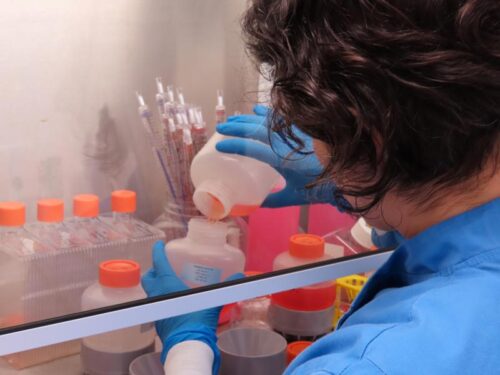
WINDSOR TERRACE — Pro-life Catholics could be facing a crisis of conscience when a vaccine to prevent COVID-19 becomes available to the general public. That’s because the eagerness to have a cure for the novel coronavirus could collide with the strong, pro-life views of Catholics.
Scientists from at least one lab, at Oxford University, are using cell lines from aborted fetuses in their research to develop a coronavirus vaccine.
Since the vaccine is still in developmental stages, and not ready for use, some Catholic leaders feel there is still time to push scientists to conduct their potentially life-saving research without the use of cell lines from aborted fetuses.
The race to convince researchers to come up with a vaccine that would not compromise the deeply held values of Catholics has begun.
“All of us want a vaccine and we want one as soon as possible,” Archbishop Joseph Naumann of Kansas City told Currents News on May 7.
But Archbishop Naumann, who serves as chairman of the Committee on Pro-Life Activities for the U.S. Conference of Catholic Bishops, added that he would appeal to the U.S. Food and Drug Administration to get a vaccine “that is not ethically compromised.”
There are cell lines that don’t come from aborted fetuses which could be used in the research and development of a coronavirus vaccine, according to Archbishop Naumann.
The use of cells from fetuses for scientific research isn’t anything new, explained Dr. Paul Carpentier, an obstetrician in West Islip and a member of the Catholic Medical Association.
“For the past 15 years we have seen the development of cell lines in research into vaccines in general,” he told the Tablet. “An entire industry has developed around this.”
In the case of Oxford, the cell lines being used came from a fetus aborted in 1972, Catholic News Service reported.
Carpentier, who stressed that he was speaking for himself and not on behalf of the Catholic Medical Association, said Catholics and others who are pro-life should be pushing for changes now and not wait until a vaccine is on the market.
“Take a stand. Make a fuss,” Carpentier said. “When you get down to the heart of the ethics, it comes down to human dignity. The Catholic Church becomes one of the few voices to remind us of human dignity.”
What are Catholics to do if there is only one coronavirus vaccine available and it turns out that it was developed from cells from aborted fetuses?
There has been some talk of boycotting such a vaccine, but it’s not clear if such threats are serious, particularly with coronavirus cases continuing to grow.
Dr. Michael Parker, president of the Catholic Medical Association, expressed concern over a possible boycott.
“We need to ensure vaccinating as many people as possible,” Parker said in a CMA statement. “To achieve this goal, we need the availability of an equally efficacious vaccine to be produced that would not dissuade a pro-life individual or person of faith from receiving a life-saving medication due to immoral methods of production.”
Coronavirus has rapidly spread around the world, infecting 3.8 million people, including 1.9 million in the U.S., according to Johns Hopkins University. The worldwide death toll has climbed to 270,000 and the U.S. death toll is more than 76,000. In New York City, the numbers are also grim: 174,709 cases and more than 14,000 deaths as a May 8, according to the city’s Department of Health.
Archbishop Naumann said that if there is no other choice, Catholics could get the vaccine, but that they should register strong protests. “If we receive a vaccine, if a vaccine is developed and it does use an aborted fetus cell line, where there is precedent, if there aren’t other vaccines available, and if there’s a threat to public health, where Catholics could use this. But as they use it, they must register a protest and again insist on an ethically developed vaccine,” he told Currents News.
In a way, the argument is coming too late, according to Carpentier.
“The horse is kind of out of the barn at this point,” he said. “I think the Vatican should have put up more of a fight when the use of cell lines from aborted babies first started years ago.”
Article was updated to include additional quote from Archbishop Joseph Naumann.
Original version of article had incorrect spelling of Dr. Paul Carpentier’s name. We regret the error.
